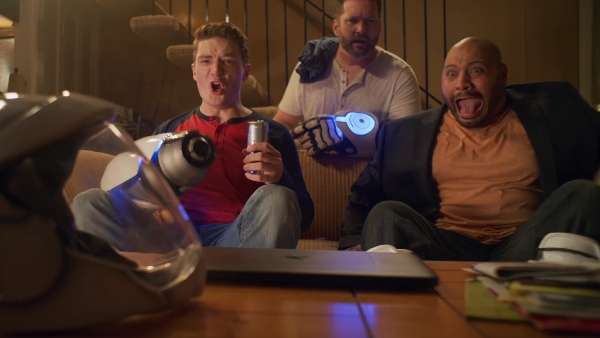 Austin-based composer/musician Carl Thiel is a great friend of the site, and we love chatting with him about his film scores. An accomplished musician in his own right, Carl has made a name for himself working with Robert Rodriguez and on many films under the Troublemaker Studios banner and the El Rey Network. In past interviews, Carl has talked to us about doing work outside that umbrella s flexing his other musical muscles. Now you can take the man out of genre films, but you can’t take the genre film out of the man. As such, Carl is getting to try some new things with his score to Lazer Team 2, the zany sequel to Rooster Teeth‘s 2015 flick (if that name doesn’t sound familiar, check out their YouTube channel).
Austin-based composer/musician Carl Thiel is a great friend of the site, and we love chatting with him about his film scores. An accomplished musician in his own right, Carl has made a name for himself working with Robert Rodriguez and on many films under the Troublemaker Studios banner and the El Rey Network. In past interviews, Carl has talked to us about doing work outside that umbrella s flexing his other musical muscles. Now you can take the man out of genre films, but you can’t take the genre film out of the man. As such, Carl is getting to try some new things with his score to Lazer Team 2, the zany sequel to Rooster Teeth‘s 2015 flick (if that name doesn’t sound familiar, check out their YouTube channel).
In the sequel, one of the team is lost in another dimension, and so the “Lazer Team” groups together once again to fight against a new threat. Just like the first installment, the sequel is over-the-top and goofy, but Thiel provides a heroic soundscape for our put-upon dimwits. Facing inter-dimensional travel, bigger action, grander adventure (and Lazers!), the team are promoted from hometown joes to galactic heroes. Enjoy our time with Carl!
GoSeeTalk: The Rooster Teeth team is pretty famous for their video channel and their sense of humor. What made you say yes to working with them on Laser Team 2?
Carl Thiel: Back in the day, I was a huge Halo fan, and I remember seeing the Red vs. Blue videos. They were jokey animation versions of the Halo characters, and the dialogue was hilarious.Rooster Teeth’s videos got so popular that Microsoft contacted them and told them they were going to support them to continue their work. They have been growing in a very viral way and they remind me of a young Troublemaker Studios.
They have that same kind of energy and that really drew me to their work. When I first met with co-directors Daniel Fabelo and Matt Hullum about the possibility of working together, I felt like we really connected. Also, I’d never done a “space saga” so it felt like a great opportunity to use those “space” chords that I love so much and don’t get to use very often.
The score has a big sound to it, so what instruments, chords or arrangements do you feel emit the “heroic” presence and energy to what you’ve written?
When you’re writing something heroic, it seems that horns always apply. French horns and trumpets really dictate the feel for that; they’re powerful and regal and have that elevated energy, but they can also be warm and emotional. So in an orchestral palette, the horns really carry that presence. When we spotted the film, Daniel and Matt had a lot of temp music from other big films – Independence Day, Star Trek and such – and that gave me an idea of what they were looking for, music-wise. We had a limited budget, but I felt that this could really benefit from a real orchestra, at least for the bigger cues.
So you were able to use real musicians, not just a synth orchestra?
Yes, there were, and it was a very fun process, especially for a project of this size. A while back, my agent had introduced me to an amazing orchestrator in England, Nicholas Dodd, and we really hit it off. Over the past year, we’d been chatting on and off trying to find a project to work on together. When this came up, I thought it would be perfect. So I reached out to him and he was instantly on board. He gave me an incredible rate, and we ended up recording in Bratislava. We only had one day to try and cram 30 minutes of music into the session, so it was very challenging. But in the end I was very happy with the results. That really helped give us that larger-than-life feel for the film.
Working with Nicholas Dodd on this music, what was done here in Texas and what was done overseas?
I wrote the cues and created the mockups here. As each cue got approved, my assistant, Kyle Scribner, would then clean up and organize the midi tracks for Nicholas, and then Nicholas would prepare all the music for the orchestra. It was an assembly line, done via the internet, obviously, but when it came to recording, we did it in Bratislava. We had about 6 weeks to get all the orchestra music written and prepped. When it came time to record I flew out to Bratislava and Nicholas met me there to conduct – he’s just fantastic and got so much more out of the orchestra than I could have ever done in just one day.
I’ve talked with John Debney before, and is a huge proponent for keeping film music in the States, although there’s a lot of great work being done in places like Prague and Vienna. What’s been your experience seeing work done in different countries?
John Debney is awesome. I actually reached out to him for suggestions on where to record. I searched for orchestras in the U.S., but the sad reality is that the players cannot play for the price that you can get in Eastern Europe. If I had the budget, I would have definitely done it here. I got a bid from Nashville – a lot of people are starting to record there because they are great players and can deliver great sounding music for lower prices than L.A. – but it’s still not feasible to do it there when you have this kind of score on a low-budget film.
I really tried, and for the same reason as John, I want to keep the money here and use our musicians, but the standard of living is much cheaper in Eastern Europe and so for 1/3rd of the price, you can get a high-quality orchestra and players get paid well for their standards. Everybody wins in that sense. But I’ll record in the U.S. whenever possible!
Aside from this story taking our simple-minded heroes into space, what elements did you want to focus on, and what parts of the story did you dial into?
A movie like this begs for a lot of music, and needs it to be almost wall-to-wall. A big part of the approach we took is that even though these guys are simple-minded folk, we wanted to give them a larger-than-life presence. They are actually very selfish people, and there’s several scenes where they are talking about doing things selfishly, but we wanted the score to be super heroic, emotional, and driven to juxtapose those elements. It makes it even funnier in that sense.
They encounter a few different kinds of beings, and I wanted to create different musical signatures for those creatures. The first part of the film happens on Earth, so I wanted to have something that was different from space so that when they leave Earth, you move from one set of sounds and cues to another and you notice the difference – from simple to grandiose and fantastic.
There’s also some elements that reminded me of Back to the Future. I’m a huge fan of Alan Silvestri, and there were elements that I really wanted to draw from that era. Luckily the directors were big fans of that film and its music and were open to that. There’s also a military element that I created for the Kilborne character that is reminiscent of Rambo and Predator. It’s a nice collection of themes and feels, and I got to mess around in several different playgrounds.
What’s the difficulty in having multiple themes and finding a way they can work together at one point or another?
Well, they all kinda have to live in the same world, right? It all has to be catered and customized, but when you have different story elements like this, they each beg for their own signature. If you look at the arc of the movie, these elements start separately at the beginning and, towards the end, they blend together. Towards the climax of the story, the themes overlap and juxtapose one another.
You can use chords and melodies that are signatures to each character and blend them in the music when they are confronting each other. Also, as the story progresses, so do their themes. A simple melody line might become more complex as the character evolves, or you might add more intense harmonies, or darker chords. Things like that.
What was the first thing you wrote for Lazer Team 2? And when you’re writing music, what is your go to instrument?
For this movie, I started with the main titles. Original, I know. [Laughs] Matt and Daniel had mocked up a sequence for the main titles, and I thought it would give me an opportunity to develop themes and feel them out. I wrote a two-minute piece for the main fanfare and main heroic theme (which is an evolution based on the first LT theme) as well as elements of space, and the more serious themes. When I showed it to Matt and Daniel, they really I loved the main title sequence and so I drew a lot of the main themes out of that. I had to write music to concept images, and some footage from the first film, but it gave me the inspiration I needed and most of what I wrote for the main titles ended up in the final version.
I also knew Kilborne was going to be important, so the first draft I wrote for her theme was in a straight military sounding fashion. It worked OK, but it wasn’t quite right. It needed a guttural, animal instinct element that her character required because she gets very wild as the film evolves. I thought back on my archive of film scores I loved and went, “of course, Predator!” When I got into that head-space, it came very easy and I was able to use that military cadence infused with the underlying savage elemental sound.
As far as writing instruments, it depends on what sound I want. If it’s going to be a big orchestral theme, I will usually compose on a piano. But for a rock track, I will reach for a guitar. I compose differently depending on what instrument I’m playing. There’s one track called “Rocking the Upgrades” that’s pretty much a straight up rock cue. Matt and Daniel wanted that to be a fun moment in the film and had some great creative input. I played most of the instruments, including a lot of the guitar parts, but when it came to the awesome leads and power sections, I brought in my good friend Mark Del Castillo who can speed pick like no one else!
A lot like in Predator, I love it when I can’t tell if something is music or a sound effect. It sounds like you put in an after effect in the score, even starting with the first track, but I can’t tell what it is. Can you break down the more unique sounds?
I wanted this to feel very orchestral, and use the orchestral palette to convey different moods. But there are particular times on this score where I used unique instruments. For example, there are these creatures called Antarians and I have this signature sound that is exclusive for them – it comes up whenever you see those characters. For that, I used a vintage synthesizer.
These guys are obviously not of this earth, and I wanted their sound to be unique. I tried a lot different synth patches, and when I found one that was interesting, I adjusted some elements, compressed it, added some distortion and delay to it. Then I messed around with chords until I played one that had the right character and tried it in a scene. Daniel loved it when he heard it, so that became their signature and we used it whenever there was an “Antarian moment”.
What about the film – be it a theme, a sequence, or joke – made you go, “I am so glad to be working on this movie!”?
There are a lot of elements that made me feel that way! It’s a fun story with great writing. It was really special to see the evolution of the edit, how the guys kept improving the story with each new version. It was Daniel’s directorial debut and he did a fantastic job. Also, the effects turned out awesome. When you first start working on a film like this, as a composer, you
see green screens everywhere, or blocks where there will be ships, or armor and gadgets, or whatever. So you have no idea how things are going to look like in the end. You hope it’s going to look good, and you score it like it’s Star Wars.
When the effects were finally done, at the very, very, very end, it looked awesome! Along the way, some things looked like Minecraft, (very blocky) and you wonder how it will all end up… but I was blow away by the finished space scenes. It looks very photo-realistic, and the score works really great with those visuals. There’s one section for example, where the team finally ends up in space – it takes just a bit for them to realize where they are – and I had written the music so it felt magical and epic when they look out the window for the first time. It had a real sense of adventure, but it was all green screen. When I finally saw the finished shot I was like, “This works so great!”
As always, thanks to Carl for his time. Lazer Team 2 premieres in theaters starting 11/13 and on YouTube Red November 22. Check out the trailer below.
After one of their own is lost in another dimension, the Lazer Team groups together once again to fight against a new threat.
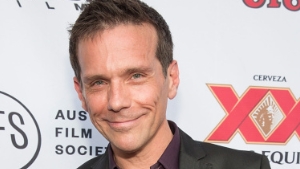
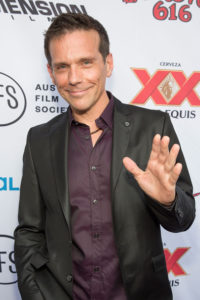
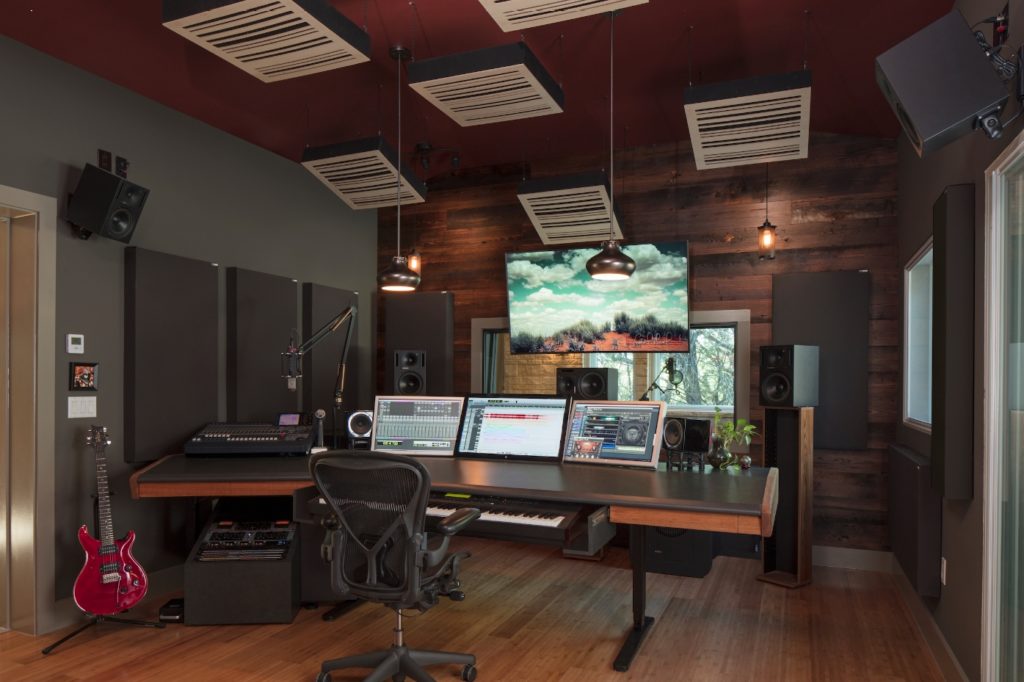
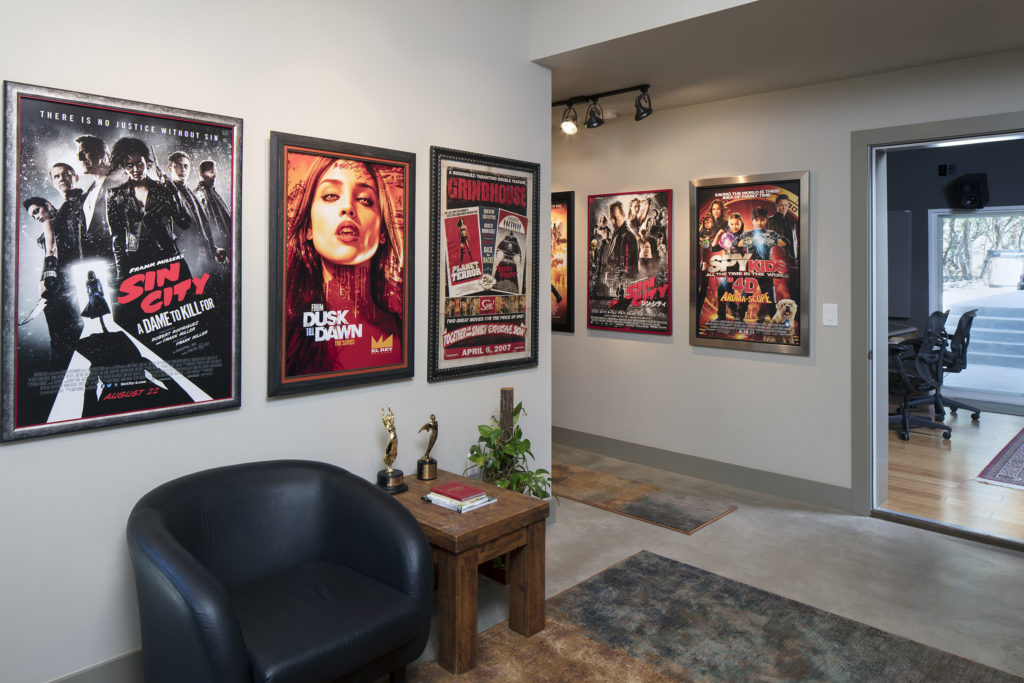
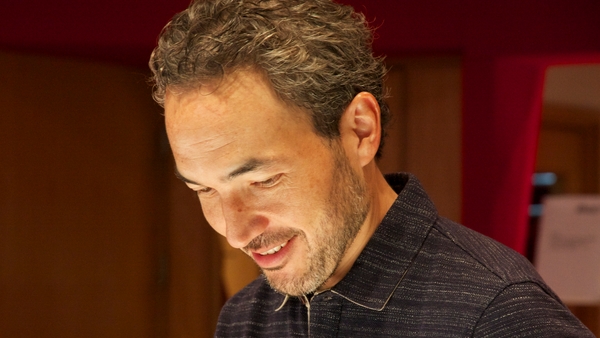
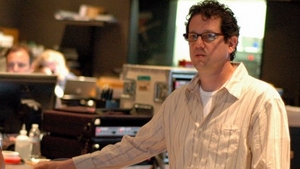
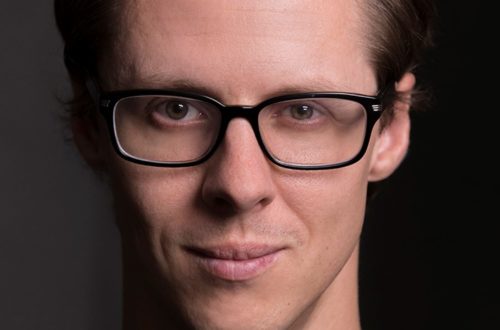
One Comment
Bryan Kluger
i really enjoyed Lazer Team!